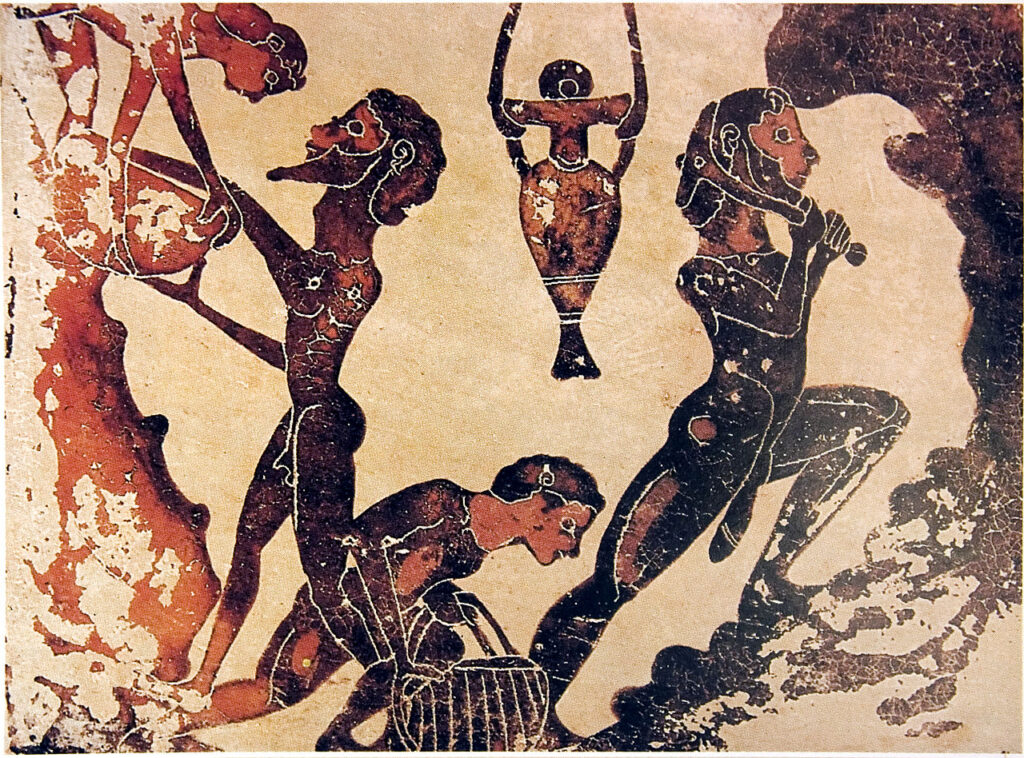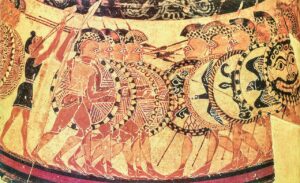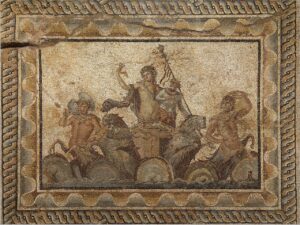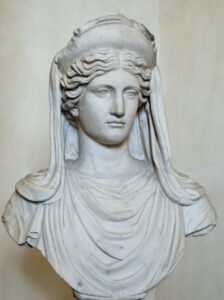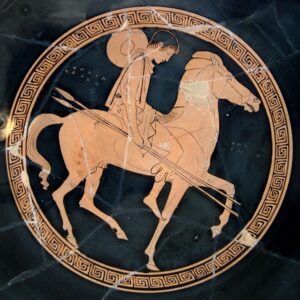Slavery in ancient Greece was an important part of ancient Greek culture. Slavery was a widespread and longstanding institution in ancient Greece, playing a significant role in the ancient Greek economy and society of the time. This article examines the origins and nature of slavery in ancient Greece, exploring the reasons why it was practiced, who was enslaved, and how they were treated.
Origins of Slavery in Ancient Greece
Slavery is believed to have originated in the Mycenaean period, around the 16th century BCE. During this time, prisoners of war were taken as slaves, a practice that continued into the classical period. In addition, debtors, who were unable to pay their debts, were often sold into slavery. The institution of slavery became widespread and firmly established in ancient Greek society, with slaves playing a significant role in the economy, especially in agriculture and domestic service.
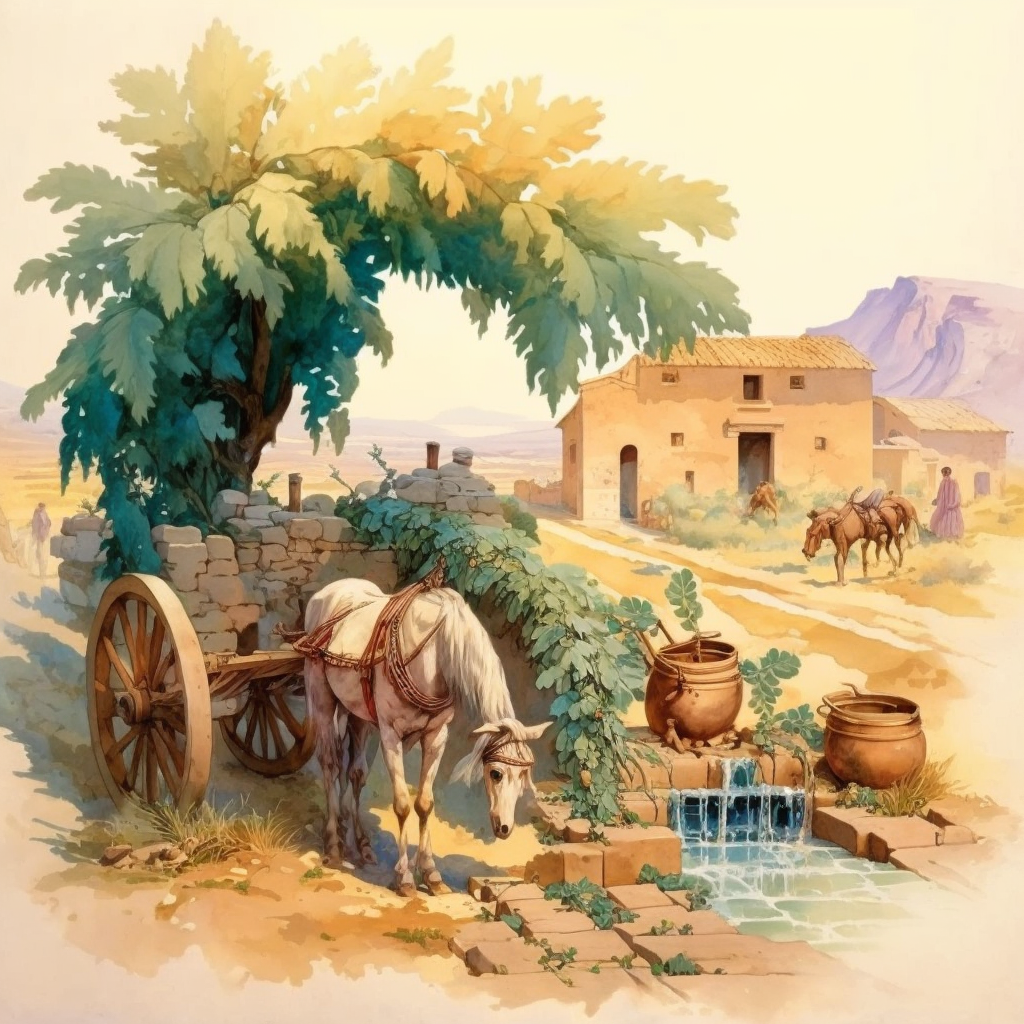
Types of Slaves in Ancient Greece
In ancient Greece, there were two main types of slaves: chattel slaves and state-owned slaves. Chattel slaves were owned by individuals, who had complete control over their lives, including their work and living conditions. State-owned slaves were owned by the state, and were used to work in mines, perform public works, or serve in the army.
How Did Slavery in Ancient Greece Work?
Slaves were owned by citizens and were considered property. They had no rights and were not treated as equal to free citizens. Slaves played an important role in the economy and society of ancient Greece. For example, they were used to perform a variety of tasks, including agricultural labor, domestic work, and skilled crafts.
Slaves in ancient Greece were usually acquired through war, trade, or purchase. They could be owned by individuals, families, or the state. Slaves were often used as domestic servants, farm laborers, or skilled craftsmen. In fact, slaves were at the bottom of the social class system in ancient Greece.
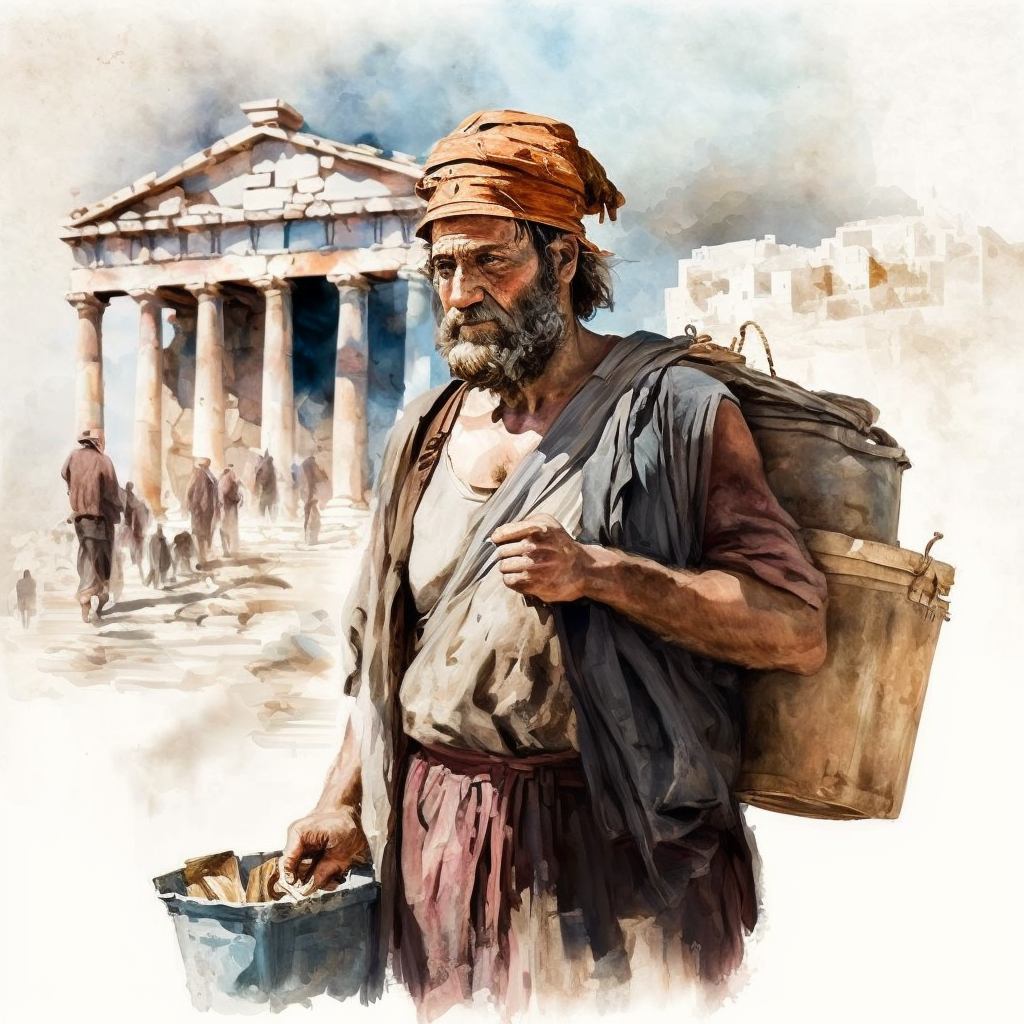
Treatment of Slaves in Ancient Greece
Slaves were generally not treated well. They had no legal rights and could be beaten or punished by their owners at any time. Slaves were also not allowed to marry or have families, and their children were also considered slaves.
As stated above, slaves in ancient Greece came from a variety of backgrounds. Some were captured in wars and sold into slavery, while others were born into slavery. Slaves could also be purchased from slave traders or obtained through other means, such as being given as a gift or being sold by one’s own family.
Despite the harsh treatment of slaves, there were some slaves in ancient Greece who were able to gain their freedom. Some slaves were able to buy their freedom, while others were freed by their owners. Some slaves were also able to gain their freedom by saving the lives of their owners. However, the vast majority of slaves in ancient Greece lived difficult lives and had few opportunities for advancement.

